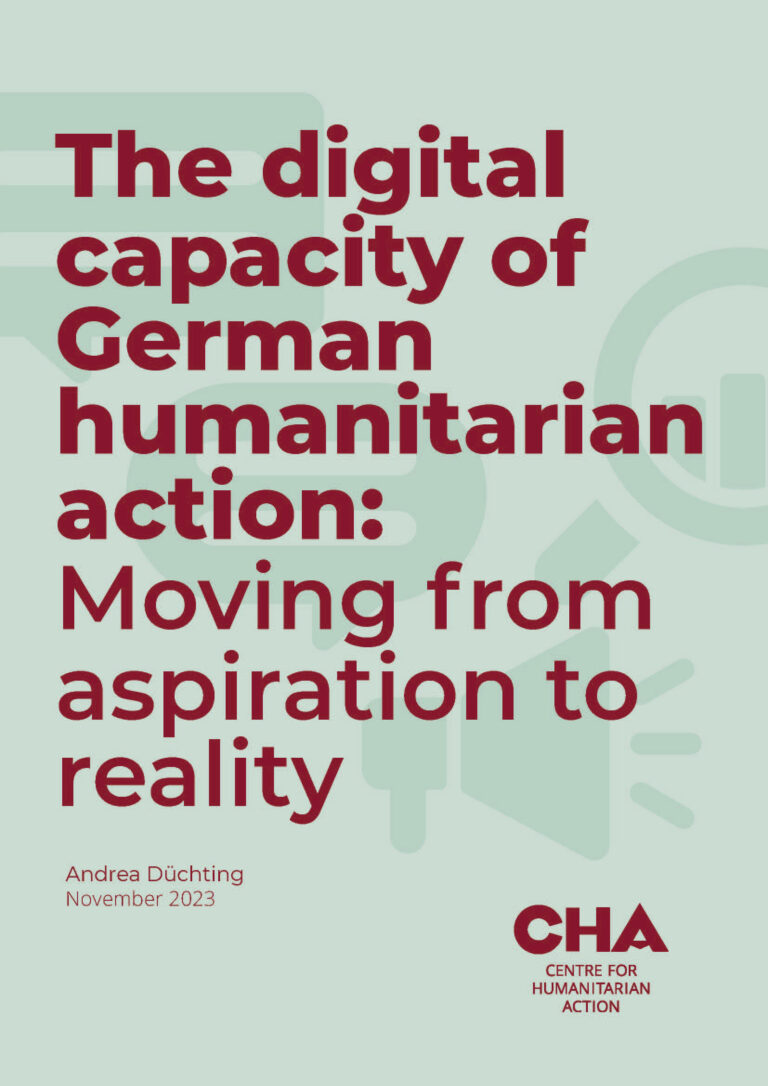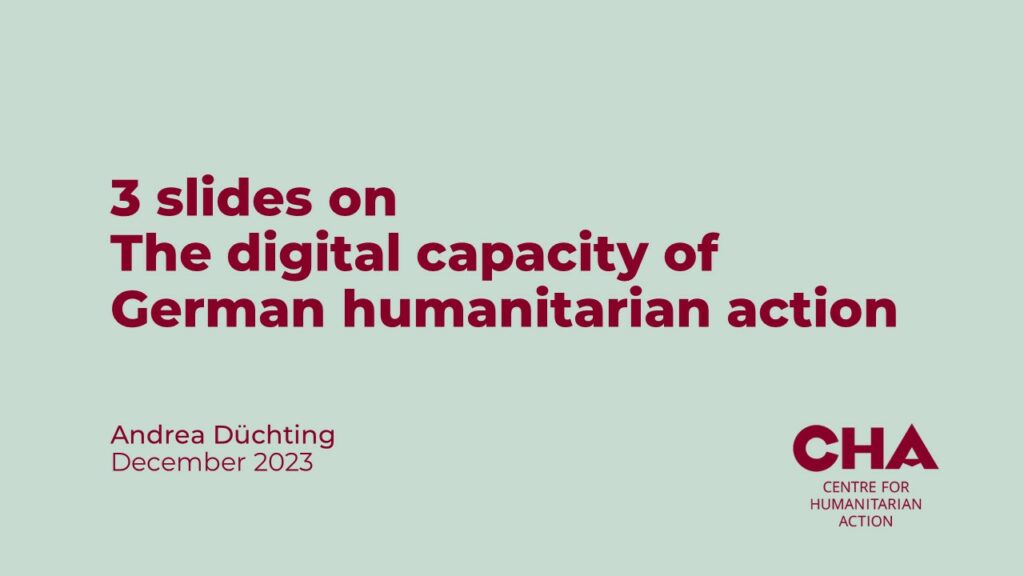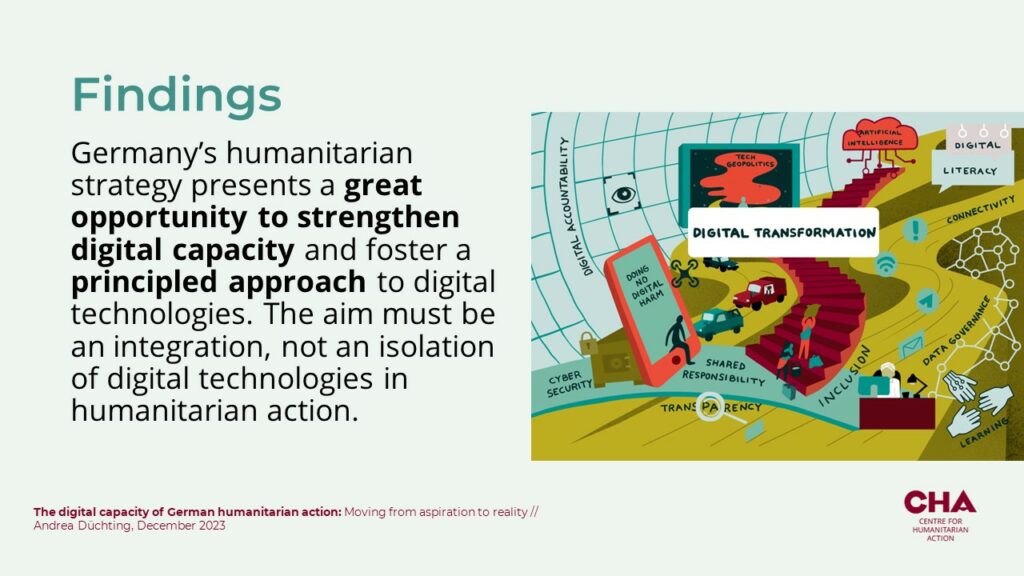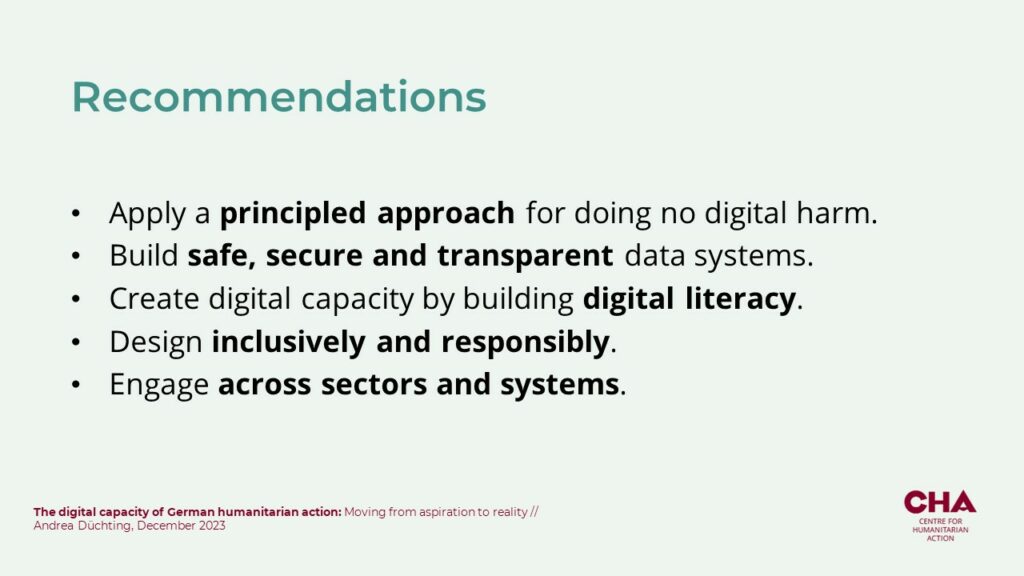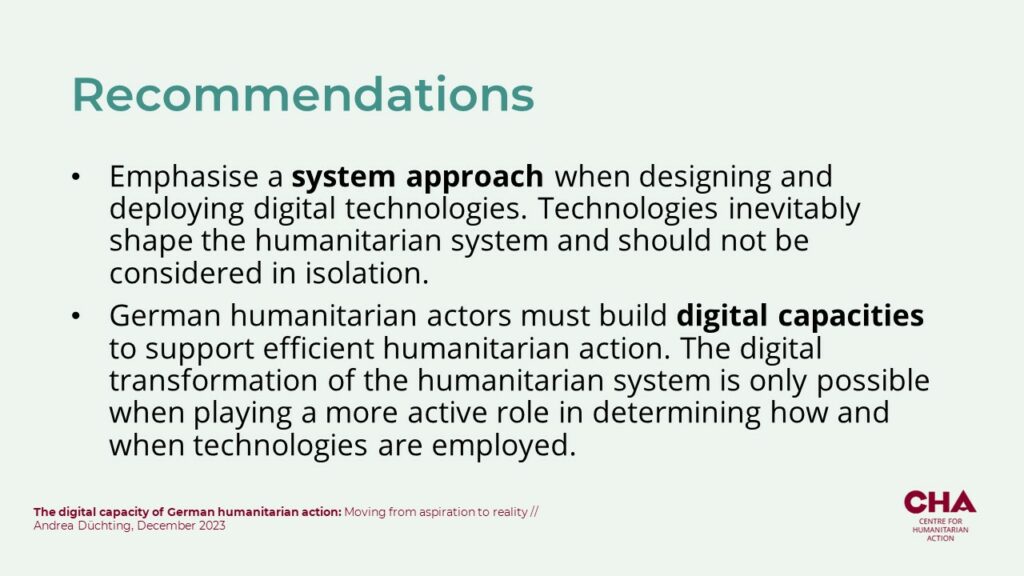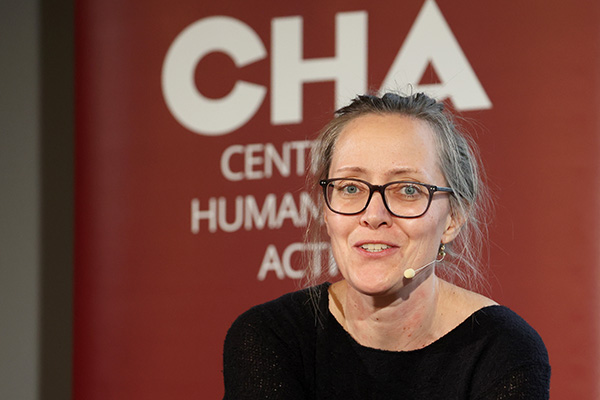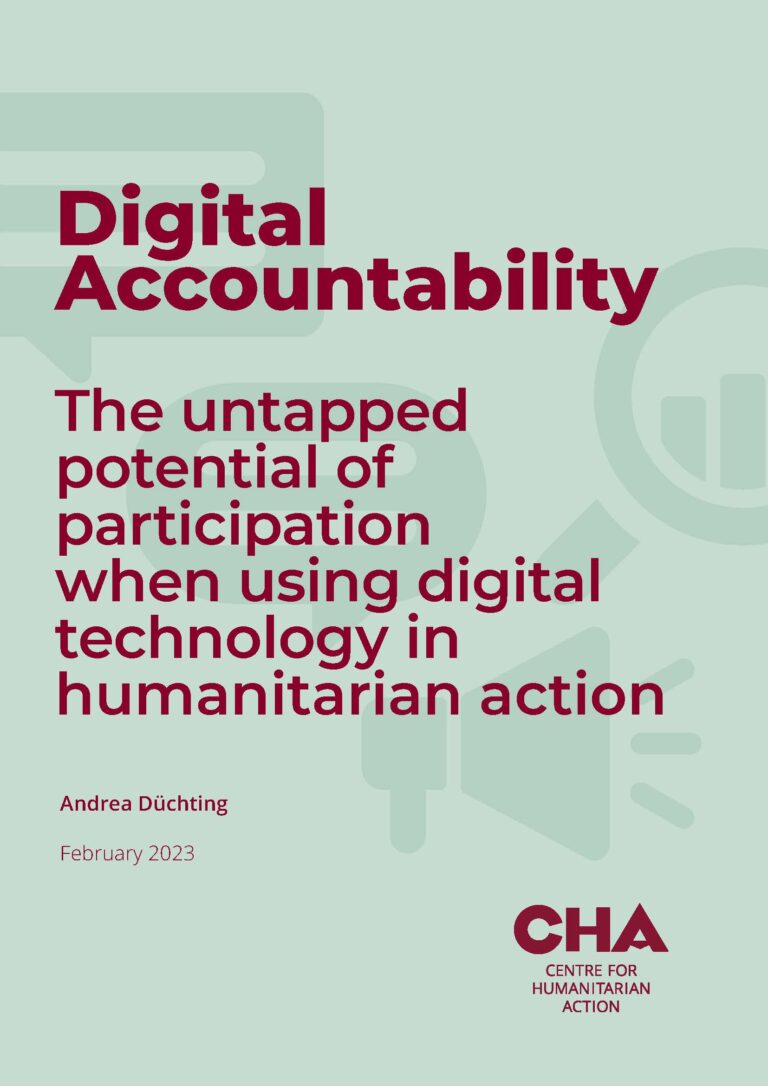| Author: | Andrea Düchting |
| Date: | 18.12.2023 |
| Downloads: |
Paper (EN)
Policy Brief (DE) Policy Brief (EN) Policy Brief (FR) |
Digital technologies revolutionise the way we live, work, and interpret the world. While the utilisation of data and digitalisation in the humanitarian sector has long been lauded for its efficiency gains, recent events vividly illustrate how information about humanitarian crises is deliberately used to influence narratives and fuel conflict. The infusion of technologies has rendered the humanitarian system more dynamic yet also more complex. This evolution requires new ways of collaboration, diverse types of partnerships, prevailing governance models, and commonly agreed forms of regulations.
Germany’s forthcoming humanitarian strategy provides an apt opportunity to set strategic priorities for Germany’s digital humanitarian capacity and future role in navigating a complex ecosystem. A future-proof humanitarian strategy needs to consider digital trends and the role of tech companies in humanitarian action. The increasing prevalence of cyberattacks and fake news will further influence the way humanitarians communicate and work to protect affected people and their data from harm. Last but not least, new and emerging technologies like Artificial Intelligence (AI) will reshape humanitarian action by offering new choices, influencing decision-making, but also creating opportunities and new uncertainties. The existence of numerous unanswered questions offer occasions for more interdisciplinary and cross-functional exchange, sector-wide and cross-sector governance fostering principled approaches.
In this research paper, CHA Research Fellow Andrea Düchting examines the digital humanitarian capacity of German humanitarian actors and their preparedness to respond to future digital trends. She looks at German policy and operational levels, specifically addressing ministerial decision-makers at the German Federal Foreign Office (GFFO) and humanitarian practitioners at German NGOs. Central to the discussion is the inquiry into their political and operational role in spearheading the digital transformation of the humanitarian system. In conclusion, the paper puts forward potential actions for these actors, outlining a pathway from mere aspiration to tangible implementation, actively propelling the digital transformation of the humanitarian system.
Take Aways:
This paper is a result of the project component Enhancing digital literacy: Identifying the opportunities and limitations of digitalisation, which is part of the project “Strengthening the Programme and Policy Relevant
Capabilities of Humanitarian Actors in Germany” (SPreAD), funded by the German Federal Foreign Office.


